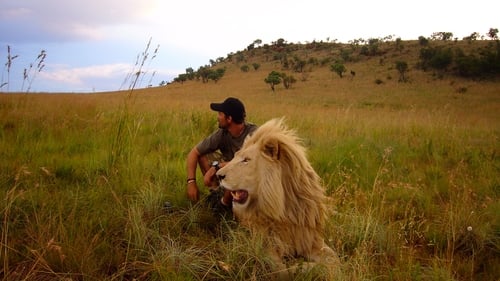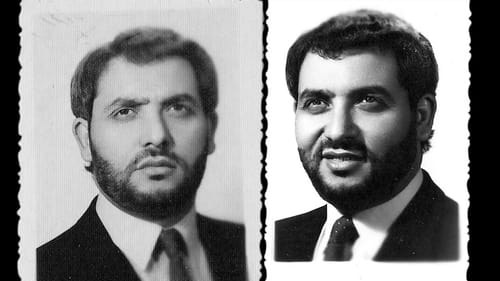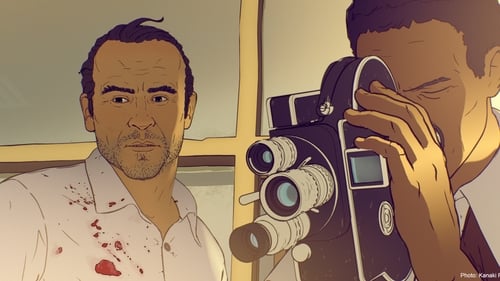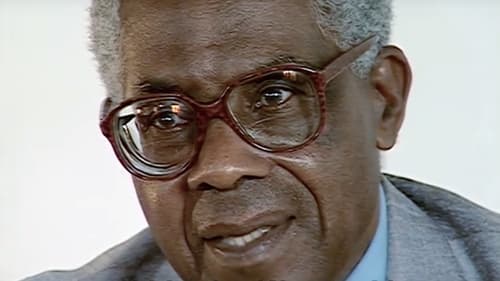Frauen, Masken und Dämonen (1948)
ジャンル : ドキュメンタリー
上映時間 : 1時間 17分
演出 : Hans Schomburgk
シノプシス
Documentary about Africa that includes footage from Hans Schomburgk's numerous African expeditions. The film footage was shot between 1913 and 1932.

A documentary that leads the audience from Namibia to Kilimanjaro to explore the African wildlife.

Remember the culture clash in THE GODS MUST BE CRAZY? This time it's real. One of the most ancient cultures on our planet is undergoing a major change. The Ju/Hoansi Bushmen in Namibia are not allowed to hunt anymore and need to converge with our so called “civilized” lifestyle. For the first time the Ju/Hoansi Bushmen travel through the Kalahari and then right into the heart of Europe. What starts as a look at their fascinating culture becomes an even more fascinating look at our Western lifestyle. A warm and humorous reflection of our habits through the eyes of people who are about to give up their million year old traditions.

At the time of Tunisian independence, owners of large boats decide to sell, while many small fishermen soon find themselves without work. Their wives then decide to pool their gold rings to sell them and thus buy boats.

Famed explorer Lewis Cotlow leads a hunting and archaeological expedition into Africa.

Christof Wackernagel, best known in Germany as an actor and former member of the Red Army Faction ("RAF") lives in Mali. In his compelling portrait, Jonas Grosch shows a man who simply cannot stand still if he senses injustice. The courage to stand up for one’s beliefs coupled with vanity? However one chooses to look at it, it is easy to imagine what made him connect with the "RAF". With his irrepressible will for freedom, Christof Wackernagel gets entangled in the horrors of day-to-day life in Africa.

Between 1950 and 1958, John Marshall made four expeditions to film the Ju/'hoansi (a group of !Kung Bushmen) of the Nyae Nyae region of Namibia (then South West Africa). During this time, Marshall shot over 300,000 feet of 16mm film (157 hours). He later produced a total of 23 films exclusively from this footage. In this short film, children tempt fate by playing with scorpions.

In Uganda, AIDS-infected mothers have begun writing what they call Memory Books for their children. Aware of the illness, it is a way for the family to come to terms with the inevitable death that it faces. Hopelessness and desperation are confronted through the collaborative effort of remembering and recording, a process that inspires unexpected strength and even solace in the face of death.

In 1981, seven Libyan exiles formed the core opposition group to Colonel Muammar Gaddafi. Thirty years later, they are back to their country only to inherit the mess he left. The film is an intricate blend of rare first-hand accounts, propaganda archival material turned on its head, evocative cinematography and an untold history of a country.

In July 1860, the schooner Clotilda slipped quietly into the dark waters of Mobile, Ala., holding 110 Africans stolen from their homes and families, smuggled across the sea, and illegally imported to be sold into slavery. Surviving Clotilda is the extraordinary story of the last slave ship ever to reach America's shores: the brash captain who built and sailed her, the wealthy white businessman whose bet set the cruel plan in motion, and the 110 men, women, and children whose resilience turned horror into hope.

In 1975, Ryszard Kapuściński, a veteran Polish journalist, embarked on a seemingly suicidal road trip into the heart of the Angola's civil war. There, he witnessed once again the dirty reality of war and discovered a sense of helplessness previously unknown to him. Angola changed him forever: it was a reporter who left Poland, but it was a writer who returned…

The folkloric group "Nzale," founded in 1979 in Bangui, practices a traditional dance called "M'baka M'Bokou," which means "strength" and is a symbol of victory. It is a battle dance: each dancer wears the skin of the animal he wishes to incarnate. One dancer stands in the middle of a circle and fights the other dancers who come to confront him one after another.

Réunion Island: An Overview is documentary short film created by Brian Iannone. It is a documentary-style video that features the island of Réunion located in the Indian Ocean. The video shows scenes of the most known natural and tourist attractions in Réunion including its beaches, volcanoes (Piton de la Fournaise) and wildlife such as the "Endormi" chameleon.

A three-part study that introduces audiences to the celebrated Martinican author Aimé Césaire, who coined the term "négritude" and launched the movement called the "Great Black Cry".

Come and experience Tippi's world!

This special, behind-the-scenes film takes us on a trip to Mali to witness Amadou & Mariam at home and their musical encounter with legendary artist and producer Manu Chao during the making of their hit album Dimanche à Bamako, The music provides the lifeblood of the film, featuring the hits Sénégal Fast Food and La Realité, popular favourites Coulibaly, M’Bifé and Camions Sauvages plus a rare, unreleased live song by Manu Chao, Kira.

In common with many L.A. Rebellion films, Snake touches on such themes as institutionalized racism, colonialism and the plight of women of color. Narrated in the first person by the filmmaker as an epistle to her son, The Snake in My Bed tells Diegu's story as a Nigerian woman in Lagos who is romantically pursed by a German national who has “gone native.” Despite his secretive and duplicitous actions, she eventually agrees to marry him and has his child, only to learn that he is a bigamist with a German wife and child.









